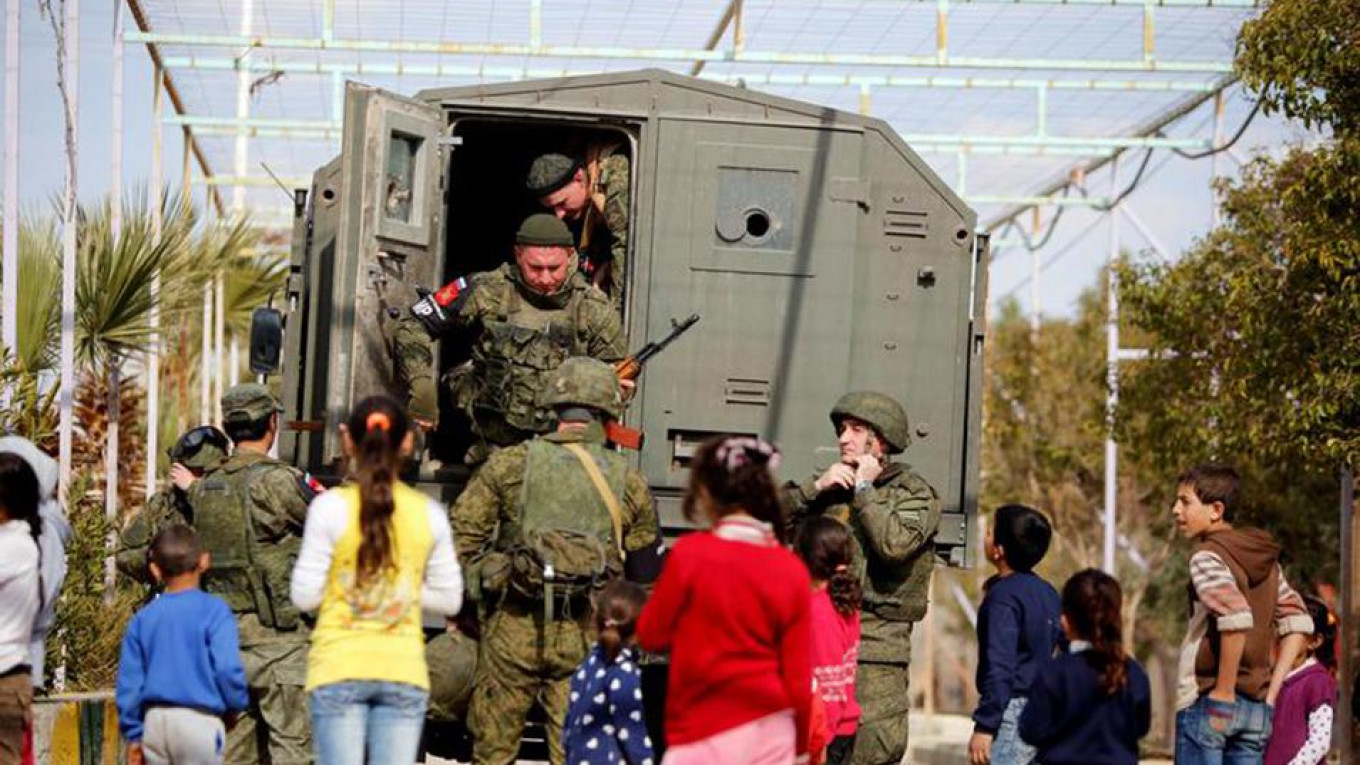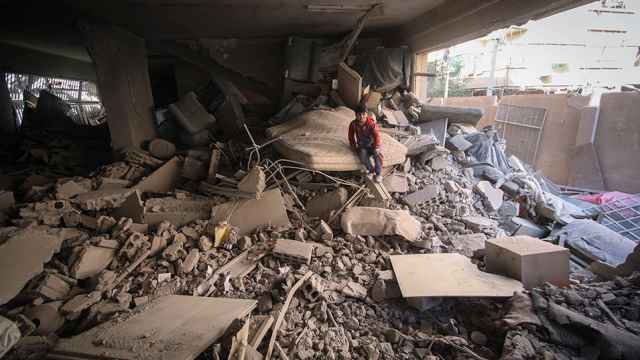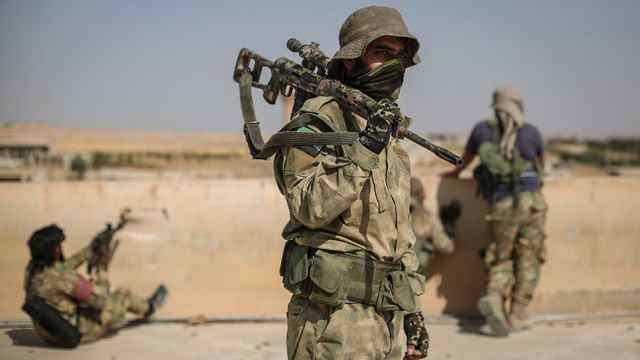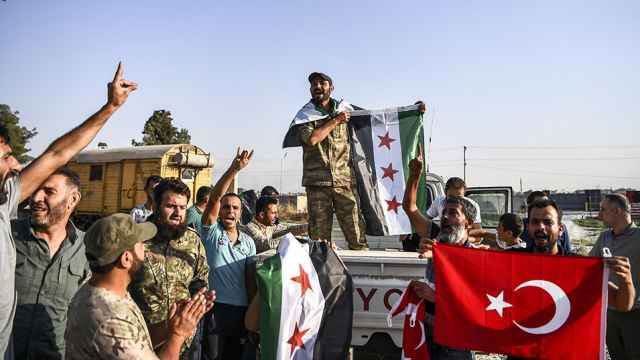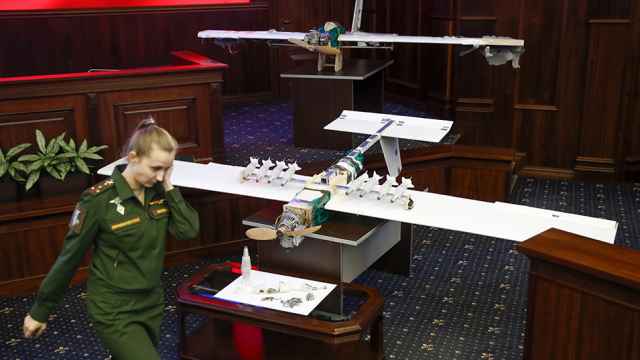The Russian military has offered Syrian rebels safe passage out of eastern Ghouta, setting out a deal by which the opposition would surrender its last major stronghold near Damascus to President Bashar al-Assad.
The Russian Defense Ministry said rebels could leave with their families and personal weapons through a secure corridor out of eastern Ghouta, where Moscow-backed government forces are making rapid gains in a fierce assault.
The Russian proposal did not specify where the rebels would go, but the terms echo previous deals by which insurgents have ceded ground to Assad and been given safe passage to other opposition-held territory near the Turkish border.
"The Russian Reconciliation Centre guarantees the immunity of all rebel fighters who take the decision to leave eastern Ghouta with personal weapons and together with their families,” said the Defense Ministry statement.
Vehicles would "be provided, and the entire route will be guarded", it added.
The spokesman for one of the main rebel groups in eastern Ghouta, Failaq al-Rahman, said Russia was "insisting on military escalation and imposing forced displacement" on the people of eastern Ghouta, where the United Nations has said some 400,000 are living.
The Syrian army has captured more than a third of the enclave in recent days, threatening to slice it in two. It has pressed ahead despite Western accusations it has violated a ceasefire.
The Syrian Observatory for Human Rights says fierce government bombardment of eastern Ghouta has killed 780 people since Feb. 18, making this one of the deadliest campaigns of a war entering its eighth year.
Assad said on Sunday the Syrian army would continue the push into eastern Ghouta, an area of farmland and towns just outside Damascus which government forces have encircled since 2013.
Many civilian residents have fled from the frontlines into the town of Douma.
Assad and his allies regard the rebel groups that hold eastern Ghouta as terrorists, and say a UN Security Council resolution demanding a country-wide ceasefire does not apply to operations against them.
The eastern Ghouta fighting follows a pattern used in other areas recaptured by the government since Russia entered the war on Assad's side in 2015, with sieges, bombardment and ground offensives eventually forcing rebels to agree to leave.
For the rebels fighting to oust Assad, the loss of eastern Ghouta would mark their heaviest defeat since the battle of Aleppo in late 2016 and end their ability to target the capital. Rebel shelling on Damascus has killed dozens of people during the last two weeks, state-run media has said.
A Message from The Moscow Times:
Dear readers,
We are facing unprecedented challenges. Russia's Prosecutor General's Office has designated The Moscow Times as an "undesirable" organization, criminalizing our work and putting our staff at risk of prosecution. This follows our earlier unjust labeling as a "foreign agent."
These actions are direct attempts to silence independent journalism in Russia. The authorities claim our work "discredits the decisions of the Russian leadership." We see things differently: we strive to provide accurate, unbiased reporting on Russia.
We, the journalists of The Moscow Times, refuse to be silenced. But to continue our work, we need your help.
Your support, no matter how small, makes a world of difference. If you can, please support us monthly starting from just $2. It's quick to set up, and every contribution makes a significant impact.
By supporting The Moscow Times, you're defending open, independent journalism in the face of repression. Thank you for standing with us.
Remind me later.


